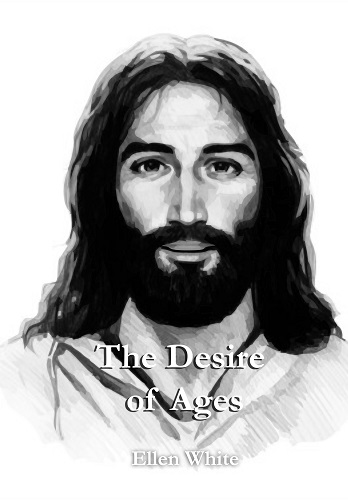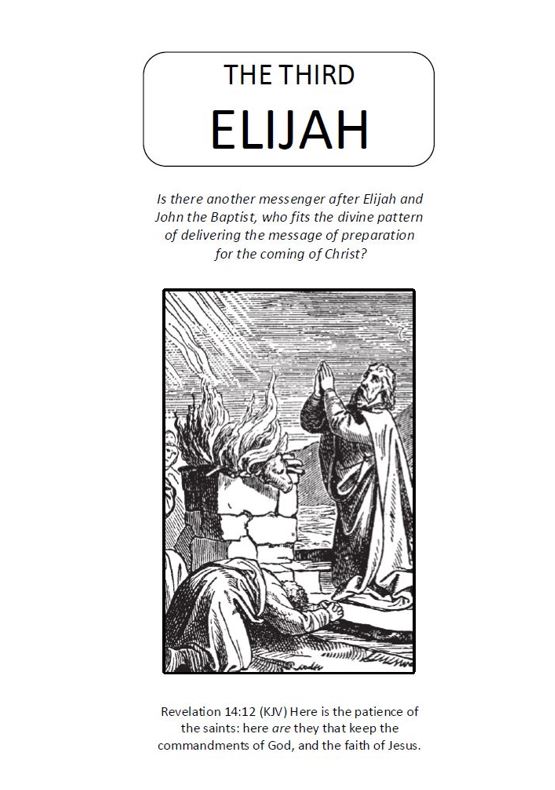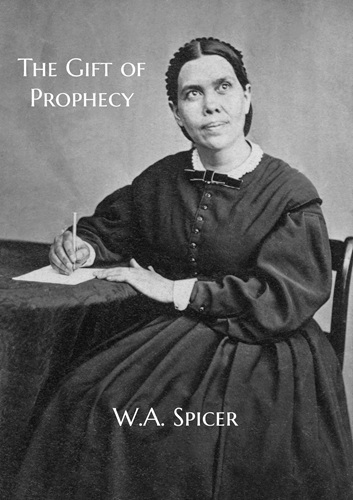Testimony of G.I Butler

Elder George I Butler
1834-1918 (84)
Former General Conference President (Twice)
“George Ide Butler (1834-1918) was a Seventh-day Adventist minister, administrator,and author. Originally from Vermont, United States. Butler's parents were closely involved in the beginnings of the Seventh-day Adventist Church, but George expressed leanings to infidelity. In 1853 his family moved to Iowa where he was converted at age 22 and baptized by J. N. Andrews. He then settled on a farm and taught school during the winter months. On March 10, 1859 he married Lentha Lockwood (1826-1901).They afterward settled near Waukon, Iowa, where Butler resumed teaching.
In 1865, after the defection of Snook and Brinkerhoff, Butler was elected Iowa Conference president. In June 1867 Butler was given a ministerial license, and in October was ordained. He worked indefatigably as an evangelist, bringing unity to the previously fragmented conference. As a result of his rebuttals to the Marion party, which focused their dissent upon the ministry of Ellen G. White, Butler became one of the foremost apologists to defend her during the 1860s and 1870s.
In 1872, because of James White's failing health, Butler was elected president of the General Conference. Butler was active in raising funds to start Battle Creek College (now Andrews University), and to establish the Pacific Press in Oakland, California. In August 1874 Butler resigned as president and James White, now sufficiently recovered, took back the reins of leadership.
Butler returned to Iowa where at the next session of the Iowa-Nebraska Conference he was elected president (1876-1877). He started a vigorous evangelistic program, but when James White's health began to falter a second time, Butler was once again elected General Conference president. By October 1880 he had returned as General Conference president frequently counseling with Ellen White. In 1882 he also became president of the Seventh-day Adventist Publishing Association. In 1886 he became entangled in a theological tangle with E. J. Waggoner over whether the law in the book of Galatians was the ceremonial or moral law. He also confronted the apostasy of D. M.Canright. By the time of the famous 1888 General Conference Session Butler called for those who were sympathetic to him to "stand by the old landmarks" or to not give up traditional theological positions. This called forth a strong rebuke from Ellen G. White.
Soon after the 1888 session, Butler's health collapsed. The Butlers purchased a rural farm in Florida which they called "Twin Magnolias" and where they could raise citrus fruit and recuperate. However, the following year Lentha suffered a debilitating stroke. Butler later repented for the wrong course he had followed at the 1888 General Conference session.
In 1901 Lentha died and George was elected the first president of the Florida Conference. The following year Butler became the first president of the South Union Conference and the Southern Publishing Association. In 1907 Butler married Elizabeth Work Grainger, whose husband had died in the mission field, and the next year they retired a second time.” {The standard biography of G. I. Butler is E. K. Vande Vere, Rugged Heart Southern Publishing Association, 1979}.
Comments on the trinity by G.I. Butler
G. I. Butler questions J. H. Kellogg on his idea that the Holy Spirit is a person. “As far as I can fathom, the difficulty which is found in The Living Temple, the whole thing may be simmered down to this question: Is the Holy Ghost a person? You say no.” {J. H. Kellogg to G. I. Butler, Feb 21, 1904}
Butler’s reply, “God dwells in us by His Holy Spirit, as a Comforter, as a Reprover,especially the former. When we come to Him we partake of Him in that sense, because the Spirit comes forth from him; it comes forth from the Father and the Son. It is not a person walking around on foot, or flying as a literal being, in any such sense as Christ and the Father are – at least , if it is, it is utterly beyond my comprehension of the meaning of language or words.” {G.I. Butler to J.H. Kellogg, April 5, 1904}
A couple of interesting observations from this dialogue:
If the church's position was meant to have changed by the 1890’s from a nonTrinitarian position to a Trinitarian position then no body told G.I. Butler in 1904 who was one of the denominational leaders.
The pantheistic views of J.H. Kellogg in his new book “The Living Temple” actually stems from an understanding that the Holy Spirit is a separate person from the Father and the Son – and as Butler contends this is foreign to Seventh-day Adventist teaching. This certainly sheds light on the nature of the Omega of Apostasy which Ellen White links closely with the Alpha (Kellogg’s heresy)





